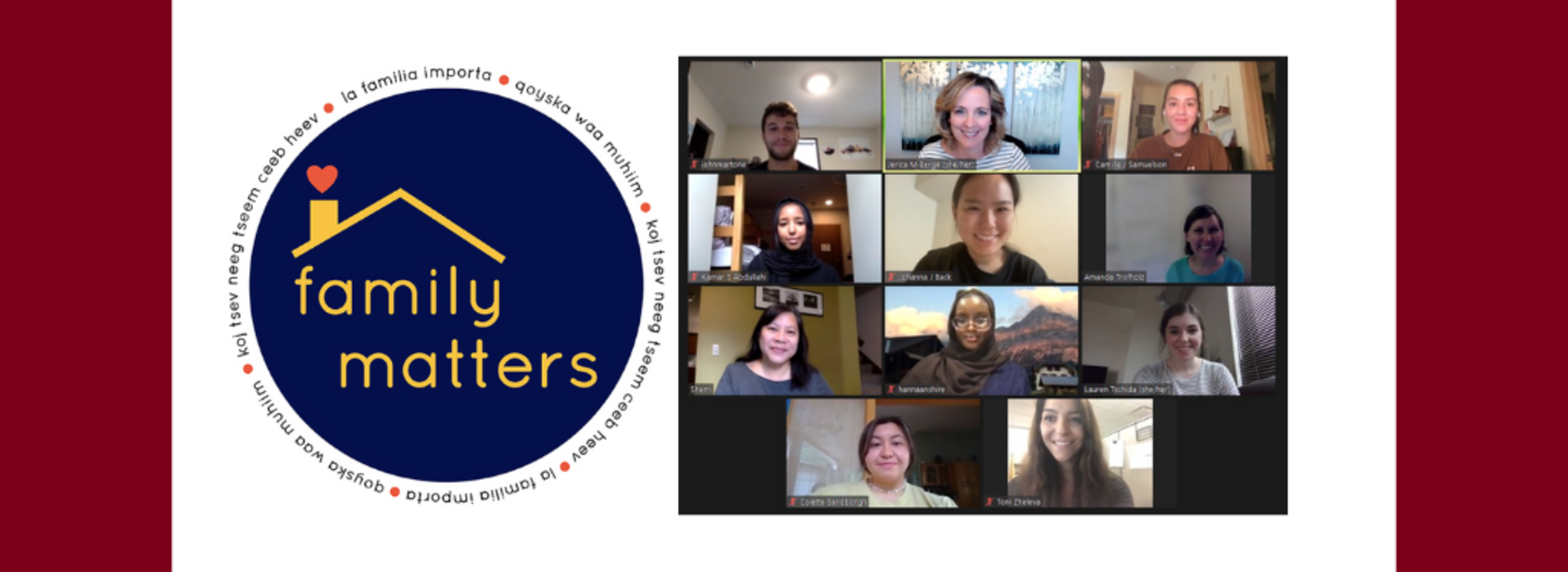
Jerica Berge seeks to reduce child cardiovascular disease risk disparities across diverse groups in Minnesota
Jerica Berge, professor and vice chair for research in the Department of Family Medicine and Community Health, is the principal investigator of Family Matters, a five-year randomized controlled trial designed to promote health equity for diverse communities in Minnesota. This is one of twelve new grants funded by the NIH in 2022 for Dr. Berge -- which is the most of any faculty member at the U of M Medical School in 2022.
Looking at the whole family to predict cardiovascular disease risk
“The Family Matters research portfolio is broadly looking at multi-level determinants of whole person health,” explains Dr. Berge. This study seeks to identify how individual, relational, familial, neighborhood and societal factors act as risk or protective factors for predicting child cardiovascular disease risk.”
All the families in this study are from diverse backgrounds in the Twin Cities. They have recruited about 200 from each of six different racial and ethnic backgrounds. To reflect that, Dr. Berge says she has many staff and students from Somali, Hmong, Ethiopian, Black and Hispanic backgrounds.
“We investigate what factors are leading to cardiovascular disease risk and then test them in interventions to help improve whole-person health outcomes. Our goal is to lead ultimately to health equity,” adds Dr. Berge.
Advancing research and the field by working with learners
Early in Dr. Berge’s career, she wanted to establish a cohort study she could follow and learn from throughout her career and into other people's careers. The Family Matters study has been ongoing for seven years and shows no signs of slowing down.
Dr. Berge started her career at the University of Minnesota 15 years ago. She gives back to students by hiring students for her studies because she remembers how valuable this real-world experience can be in shaping learners' careers and worldviews.
Students are a big part of her workforce, including creating the study's design, carrying out and disseminating the study. “They really get a chance to do all parts of the study, and I think that’s a big thing that draws students to this opportunity,” Dr. Berge elaborates.
Lauren Tschida, a first-year master's student, has worked with Dr. Berge on the Family Matters study for three years. She says the most rewarding part of being involved in this study is seeing the research concepts she learns in class put into action.
“It’s made my class work a lot more enjoyable because I understand what’s going on and how this would be applicable in the real world,” Tschida remarks. "Each of my classes have emphasized the consequences of cardiovascular disease and how it's especially important to develop healthy habits in childhood to mitigate the risk. Knowing that the research I'm assisting with actively helps the communities we work with is incredibly rewarding."
The Family Matters study intentionally focuses on protective factors for whole-person health because then interventions can be designed to benefit Minnesota communities and help lift them to their best health. Not only does it benefit society broadly, but it benefits the people involved with the study across multiple disciplines and backgrounds as they collaborate.
Learn more about the study here.